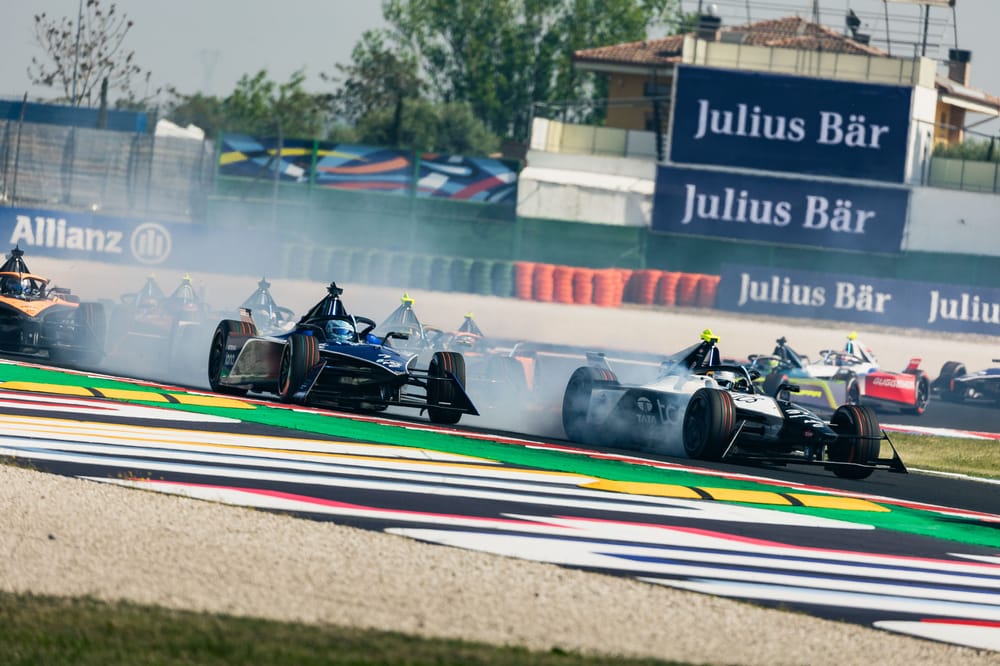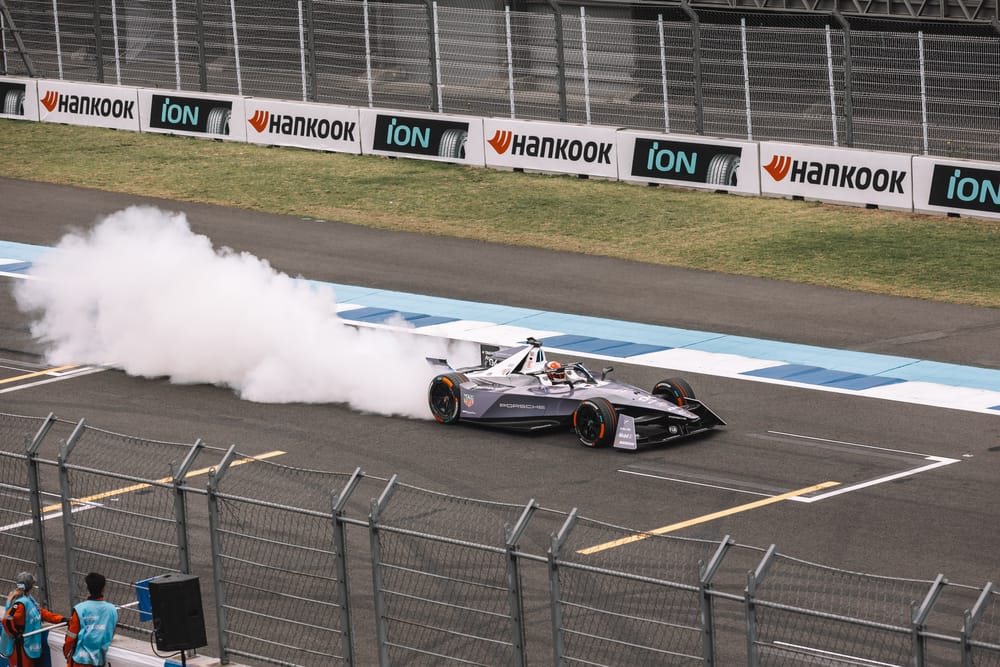until Abu Dhabi Autonomous Racing League

The disqualification handed to Porsche's Antonio Felix da Costa which stripped him of victory in yesterday’s Misano E-Prix, has left a febrile atmosphere between Porsche and the FIA.
Here The Race takes an in-depth look into the background and circumstances that triggered the disqualification and the ramifications going forward.
Why was da Costa Penalised?
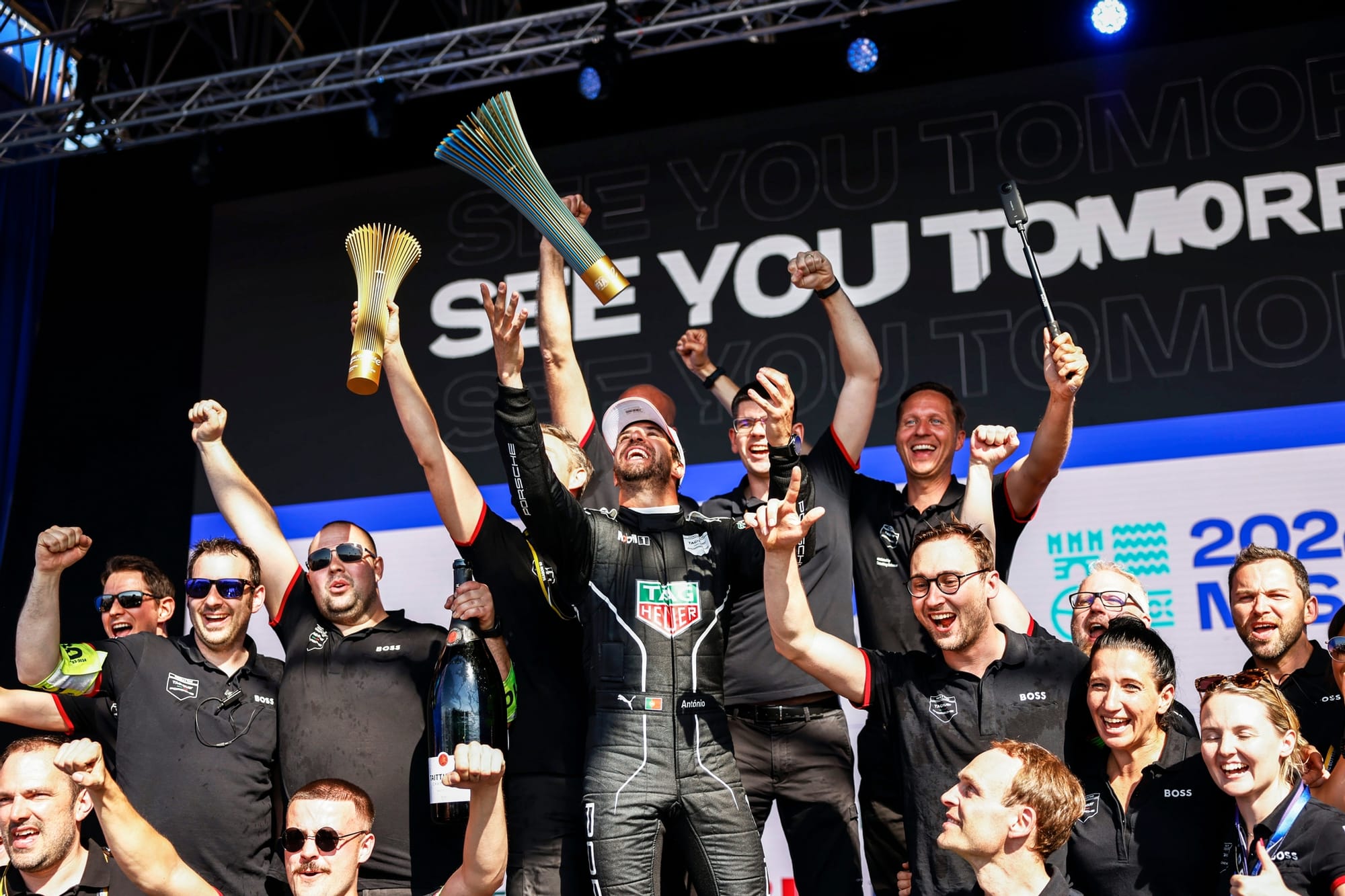
There are several throttle spring parts in the official parts catalogue (approximately 140 pages long) which is produced and distributed by Spark Racing Technologies (SRT).
SRT has been the official car and spares supplier for Formula E throughout its history. When Gen3 started in January 2023, SRT did not have enough parts to supply to all the teams. Consequently, an older-spec throttle damper spring had to fulfil some of the allowances but was only used in the development running and testing of the Gen3 car.
The key difference in the components is understood to be that the older-spec spring is coated, while the newer-spec one was non-coated, with the former being cheaper.
The development spring was never in the SRT catalogue that was issued between the pre-season Valencia test in October and the first race in Mexico in January but the removal of the Gen2 spec spring was not highlighted or cancelled when the removal of parts was released at that time.
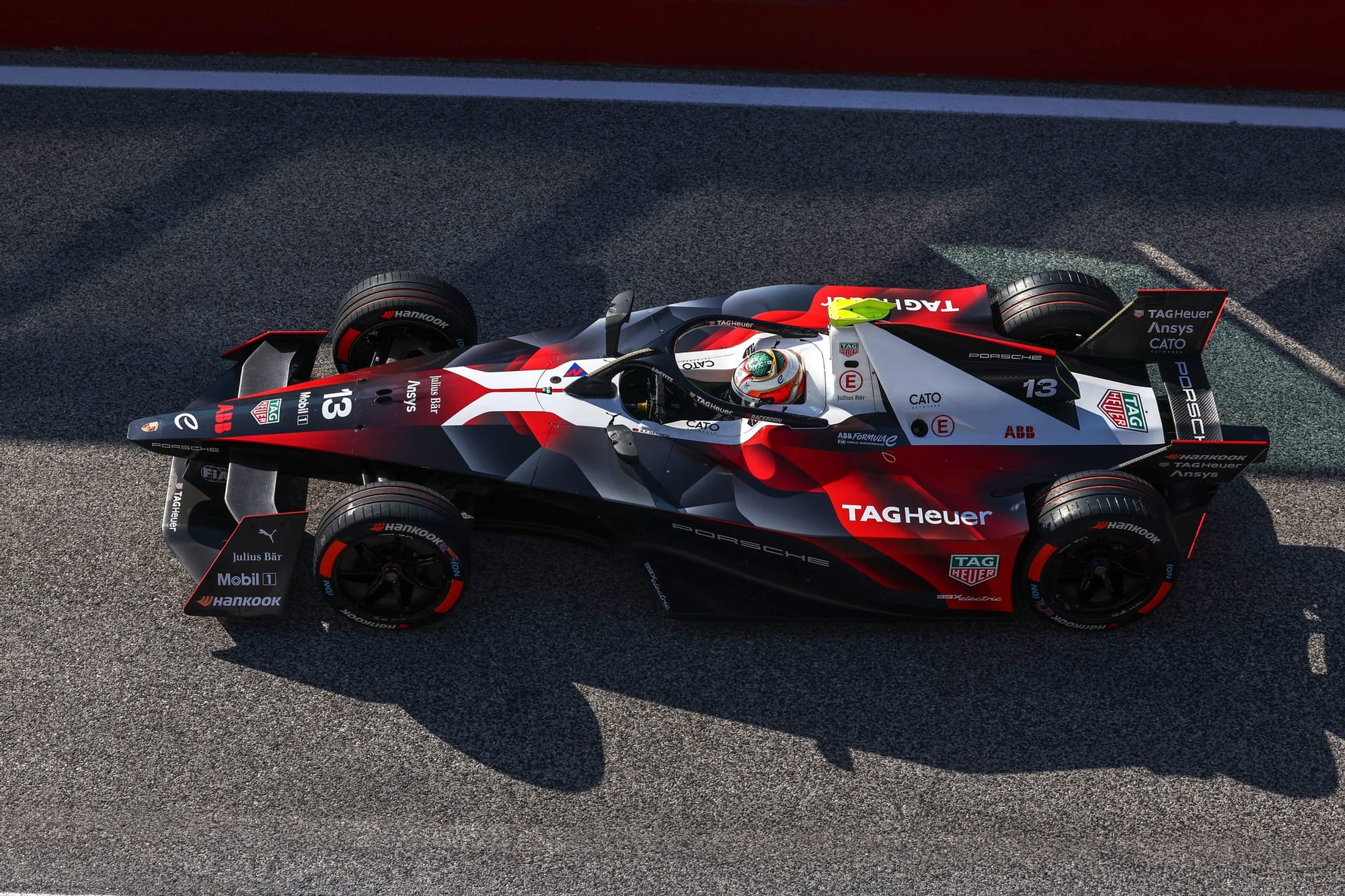
Therefore it's assumed that Porsche and other teams probably fell into the trap of running the older illegal spring in some races in 2023 and 2024. The Race has discovered that at least three teams in the Formula E paddock still have the older-spec springs in its stock of spares from Spark, although they declined to comment if they had been used in races and asked for their identities not to be revealed.
It can also be revealed that the FIA technical delegates conducted random checks on the throttle pedal spring in at least one post-race occasion this season. This was after the first Diriyah E-Prix in January. No checks on the throttle damper spring were declared during last season after races.
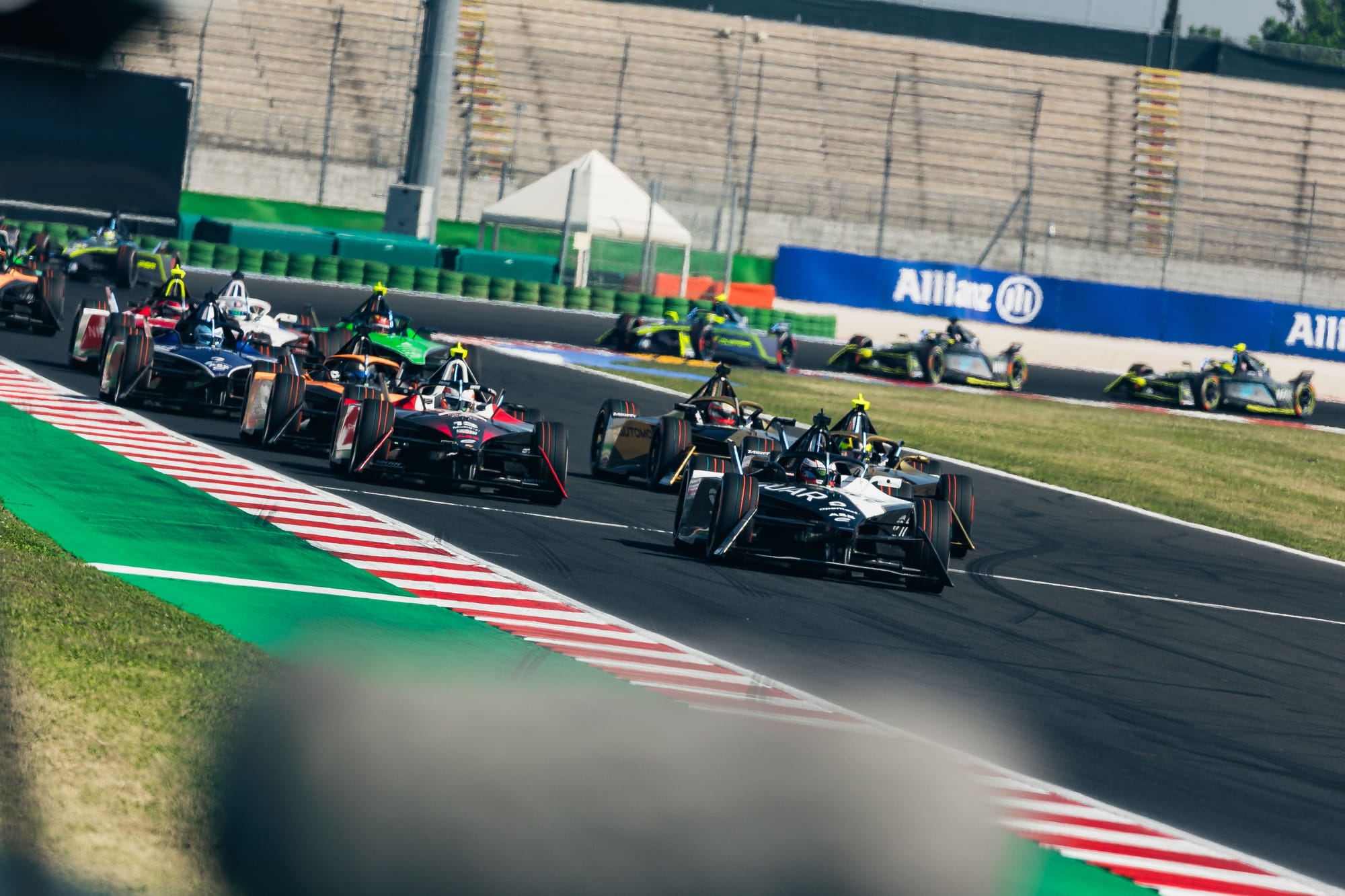
Additionally The Race has also discovered that as well as the mandatory top three cars that were checked after yesterday's Misano E-Prix, 16th place finisher Pascal Wehrlein's Porsche 99X Electric was also checked and found to have the same out-of-date spring on his car, although he avoided a sanction as it was not an official top three technical check.
Performance Advantage or Not?
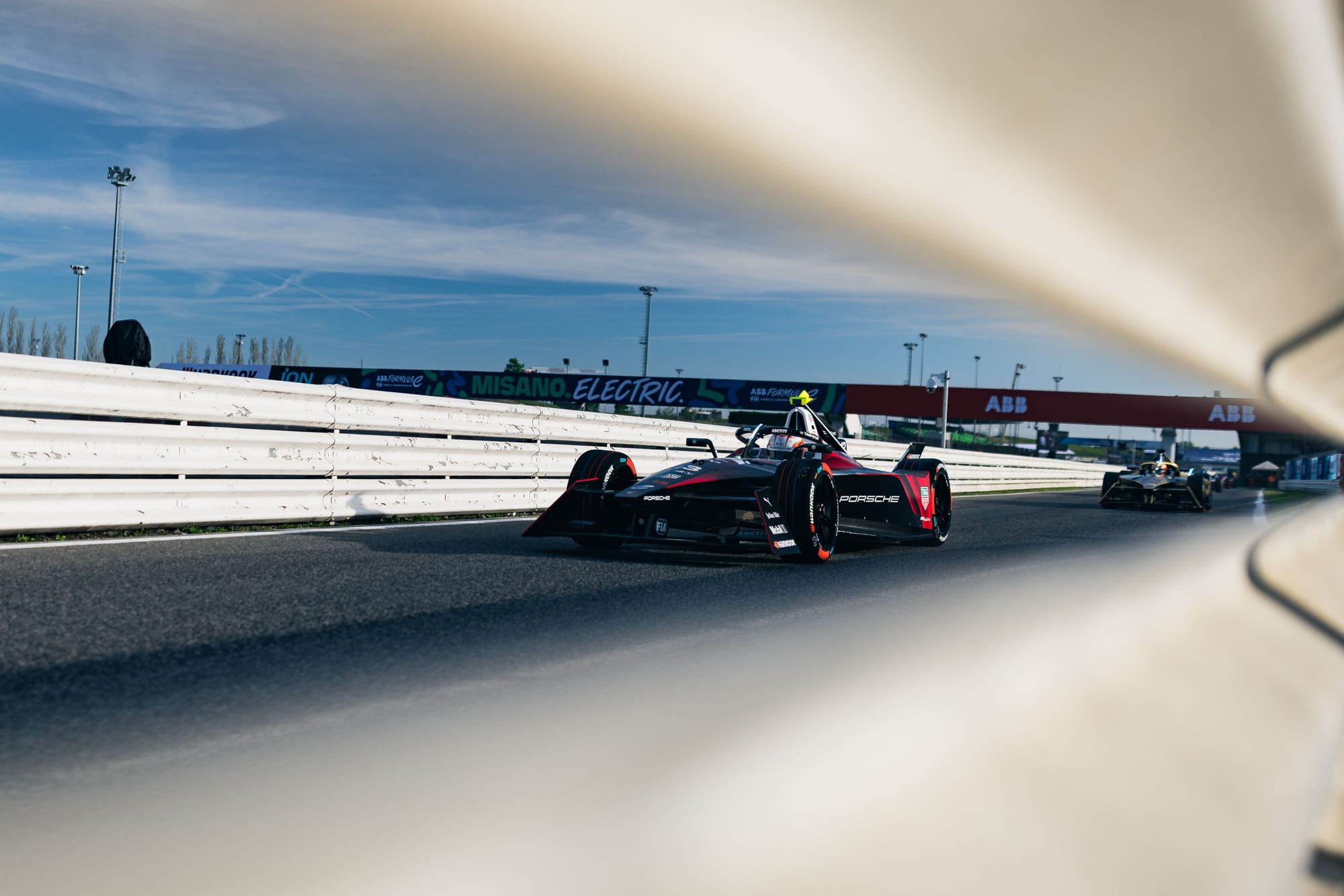
It is believed that there are subtle differences between the Gen2 and the Gen3 springs. Ultimately the spring only brings the throttle pedal back after it’s compressed meaning there is no performance advantage in running it. This was also explicitly reflected in the steward’s decision issues last night.
However some rival teams have suggested to The Race that subtleties in the spring could be advantageous for specific styles of driving, including lift and coasting which is an intrinsic skill to Formula E - and was in particular at Misano.
This though is also disputed by other senior technical figures in the paddock, including, naturally, Porsche.
Porsche's painful penalty history
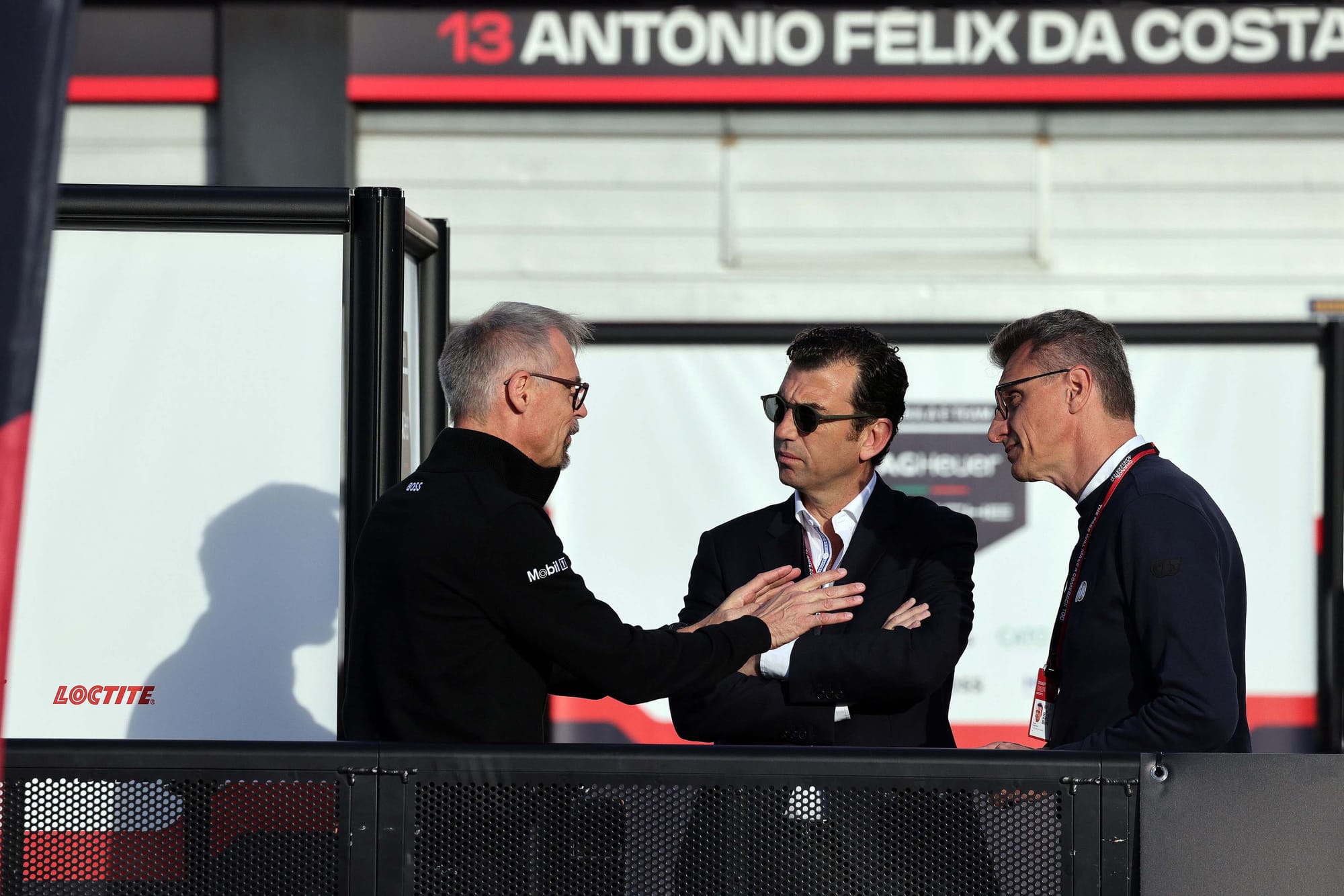
Without wishing to get into the realms of conspiracy theories, Porsche and the FIA have had several serious flashpoints in recent times.
At the 2021 Puebla E-Prix in Mexico City, Pascal Wehrlein was stripped of what would have been his first E-Prix win, when the team were penalised for an administrative error of tyre choice allocations ahead of the race.
Last summer in London when Antonio Felix da Costa lost his second position because of a deflating Hankook tyre which had been damaged via another car, the case went all the way to the International Court of Appeal which upheld the sanction.
Then at the first round of the present season in Mexico, Porsche was hauled over the coals after Wehrlein’s win for a suspected launch control aid. This was unproven and the investigation ceased.
Porsche is staying tight-lipped on commenting too much publically on the disqualification, as it assesses legal channels over the next 96 hours - the time in which it can lodge an official appeal.
“From our point of view, it was a win for Antonio, a driver with a great race, without any performance advantage on track, and therefore we will assess if we hand in an intent to appeal. We now check with the lawyers and go through our internal processes," Director of Formula E at Porsche Florian Modlinger told The Race.
However, speaking later to Formula E’s TV coverage just before Sunday qualifying, Modlinger told reporter Nicki Shields that the sanction was “a big loss for us, but also the sport and for Formula E in general because these consequences are really harsh".
“We have a bit of the impression and the feeling that not all teams are treated equally. That’s our personal impression. For the FIA World Championship this must be guaranteed, also for the future, that all teams are treated equally and with the same approach."
Does the Penalty Stack Up?
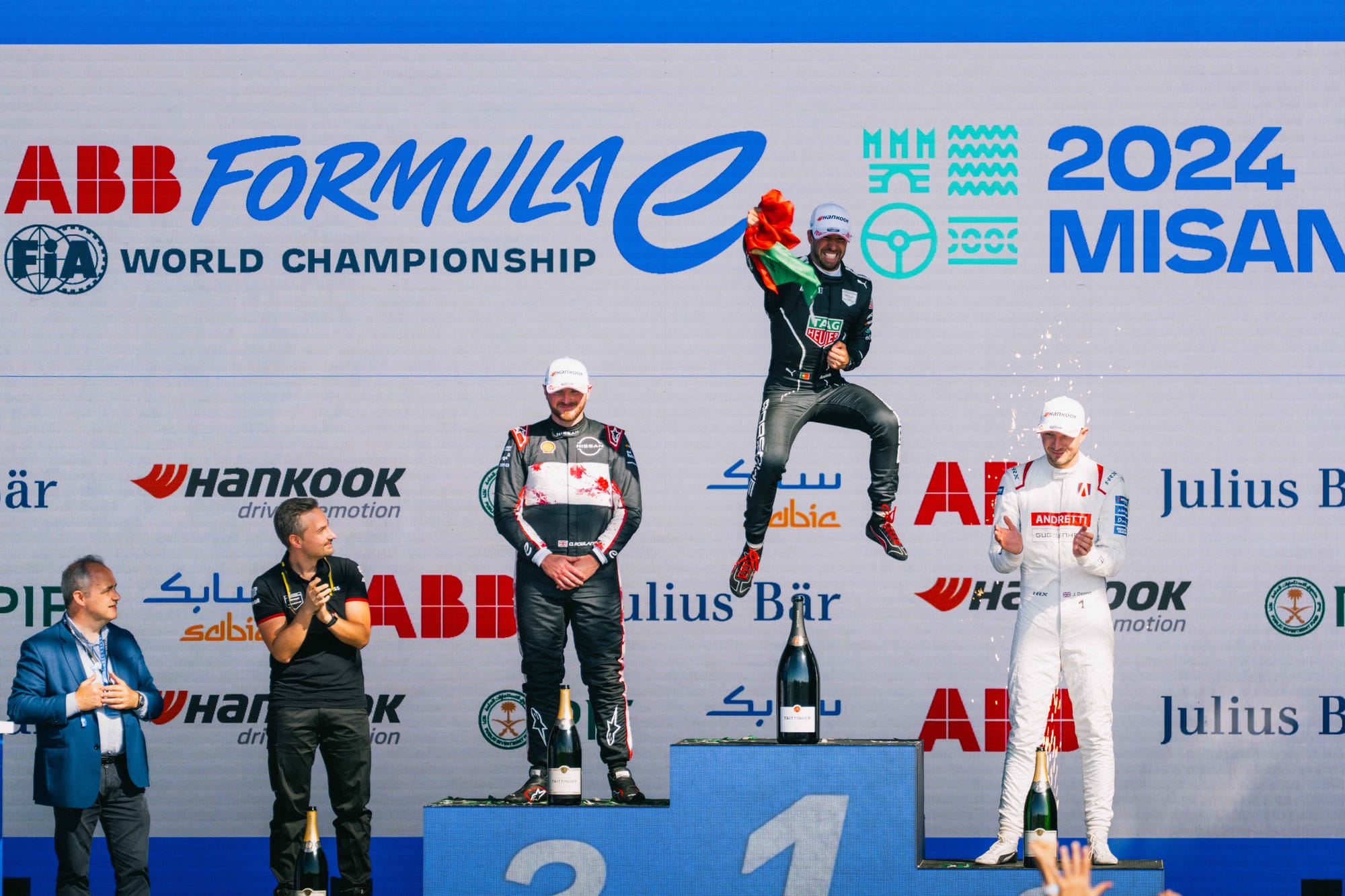
Even if there is no performance advantage, this spring is not allowed anymore in the official Spark catalogue and disqualification was unfortunately for Porsche and da Costa inevitable via the International Sporting Code, which is referred to by the stewards.
A breach of compliance in components on a car is ultimately a slam-dunk and black-and-white disqualification via the range of penalties used in the ISC.
Yet there are case studies from Formula E’s past that both support and contradict the decision to apply the disqualification of da Costa yesterday.
At the Hong Kong E-Prix in December 2017 Daniel Abt lost his victory six hours after the race because of an administrative error by his Audi Abt team.
However a few months later at the Santiago E-Prix, the Techeetah team, after scoring what was then Formula E’s first ever 1-2, were found to have been using its own ersatz system of quick release and fixing of the driver’s seat belts while changing from one Gen1 car to another at the mandatory pit-stops. The penalty for this clear performance advantage was a €15,000 fine per car whilst the team retained the race result on that occasion.
Compared to the Porsche/da Costa situation, the Techeetah incident in Chile was deemed a team issue, not related to the race conducted by Jean-Eric Vergne or Andre Lotterer. Could this not have applied to da Costa at Misano?
An argument could exist and stand as to whether da Costa should have had the penalty for a team mistake – having a non-compliant part installed in the car – or the FIA should have settled on a fine and another penalty outside of an outright disqualification.
Ultimately though the stewards have a framework to use via the ISC.
The Optics and Possible Ramifications
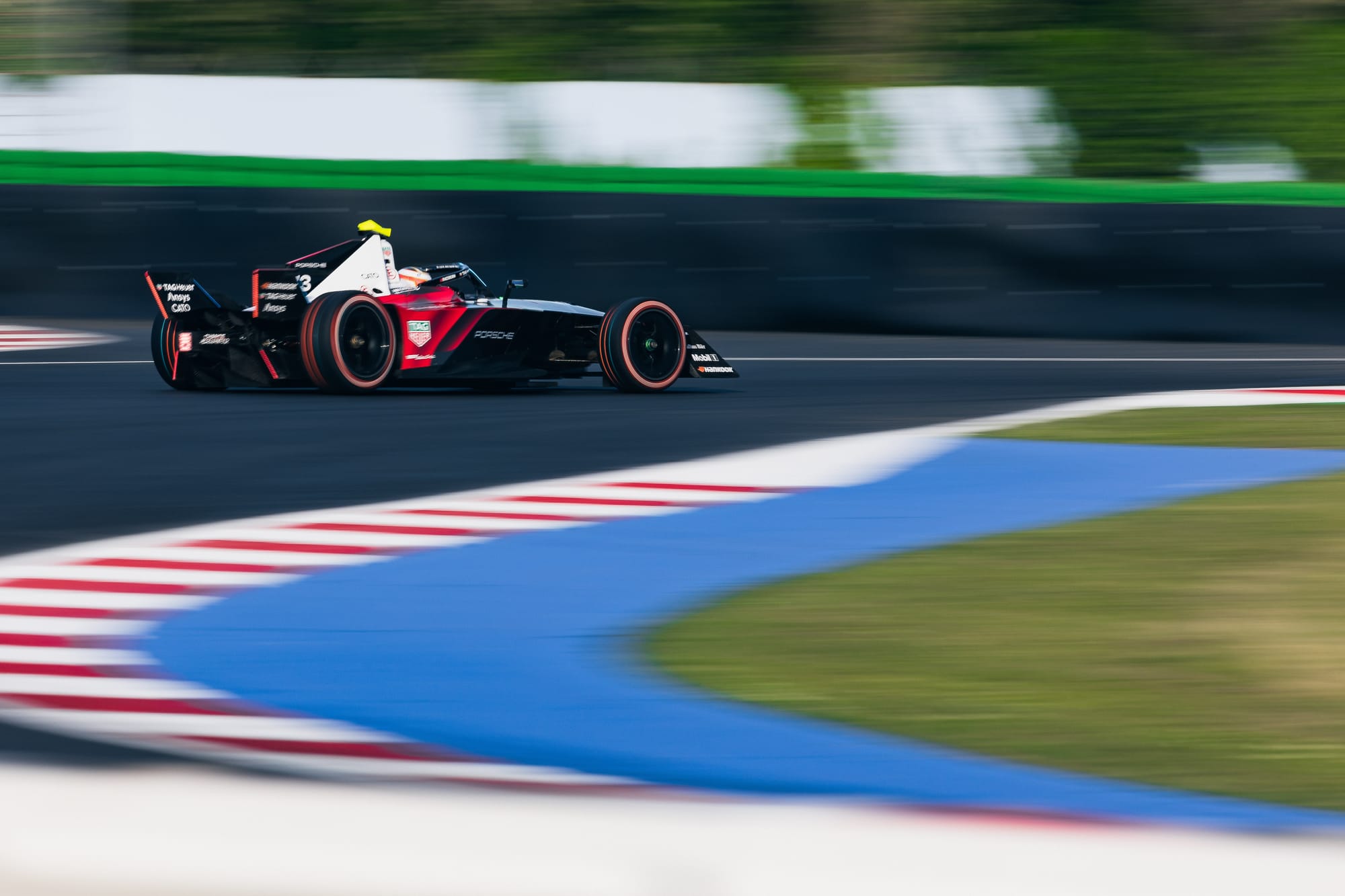
Another FIA and Porsche flashpoint will, in the short term, be forgotten as Sunday's Misano E-Prix concentrates everyone’s minds.
But the possible legal challenge through an appeal and possible International Court of Appeal pursual may also unfold.
More serious still could be the ramifications for the mid- and long-term future of Porsche in Formula E. This is a sensitive time for Formula E in ensuring its present and possible future OEMs solidify their commitments to the Gen4 era from 2026 onwards.
While there is no suggestion that it will have an immediate bearing on the decision, it probably isn’t helpful when Thomas Laudenbach reports to his superiors at the board level.
From a promoter’s viewpoint, there was a conflation of emotions over the affair with Formula E CEO Jeff Dodds telling The Race that he had “three emotions last night as it all unfolded".
“Not necessarily in this order, but I kind of had a human emotion as someone who knows Antonio and has watched what has unfolded in the press over the last week about the speculation for him and knows how good he is at driving a car.
“I felt physically sick for him because I know what that would have meant for him to stand on the podium yesterday.
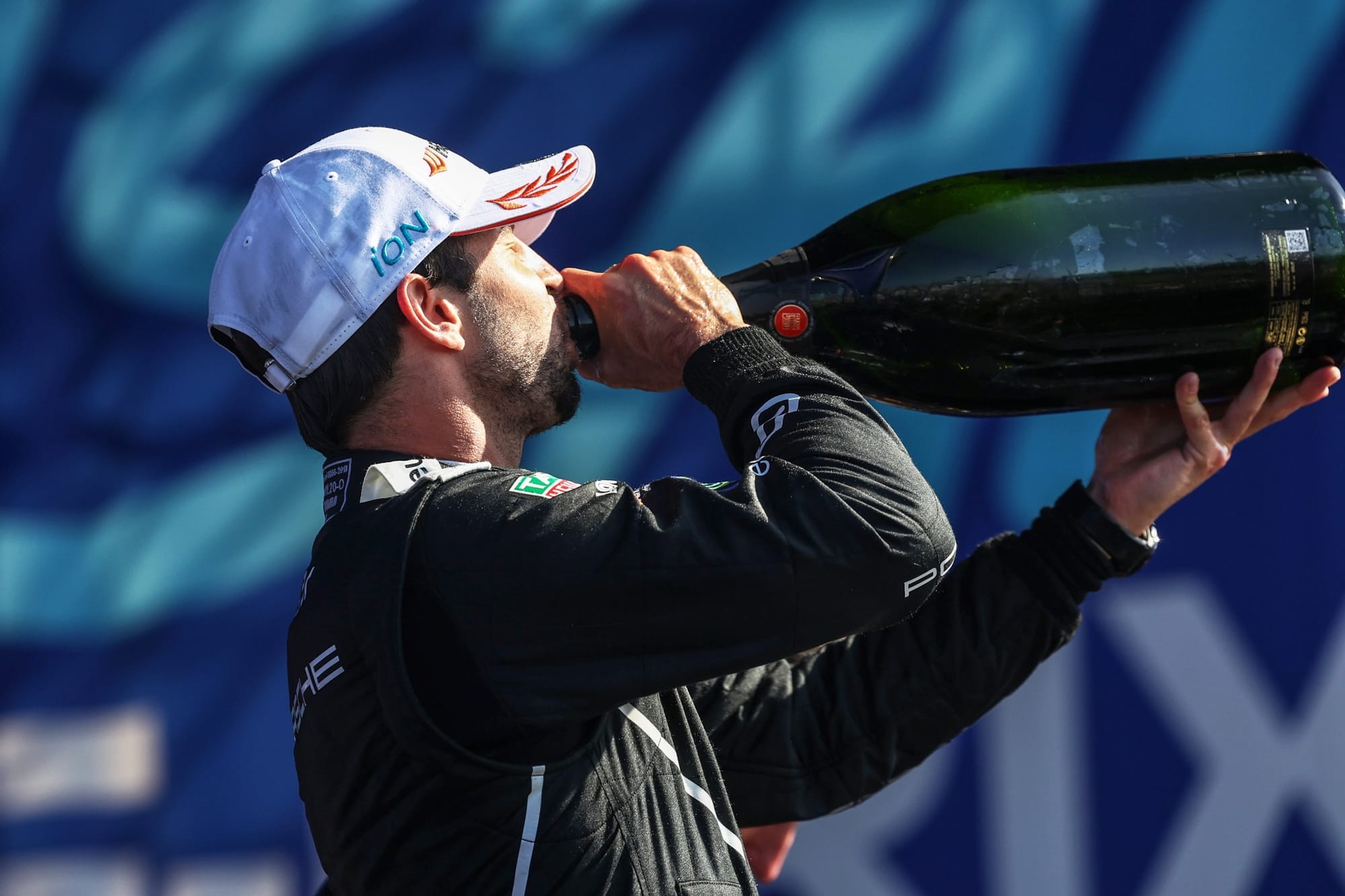
“Then there’s the second piece, as the chief exec and the promoter, how did that feel?
“No one wants to do a race, do a podium, jump in a swimming pool and then hours later have that change. I don’t think that’s a good look for any sport if that happens, and it happens in a lot of sports.
“We’re a highly technical sport and then there’s the ‘what can you do?’ And in the end, Porsche may well appeal, I suspect that they will look to appeal.
“Then it’s for the FIA to decide what the penalty for that is.
“We could debate all day long whether it should be disqualification or it should be time penalty or what the penalty should be, that’s the bit of the job we rely on the FIA to do because they’re the regulator of the sport and it’s their job to retain integrity in the sport.
“But when you add it all together, I still feel sorry for Antonio. I don’t envy the FIA’s position, and for us, it’s not a great look for the sport.”
